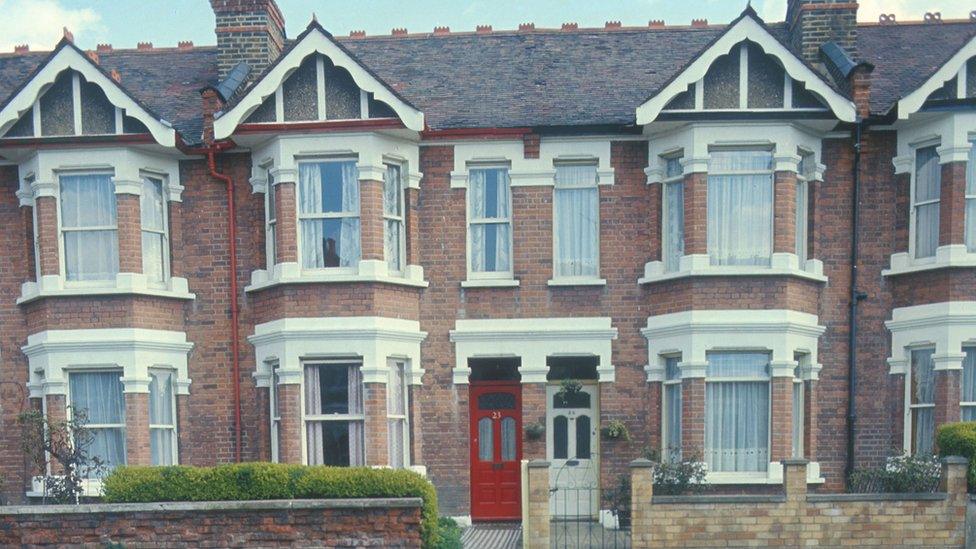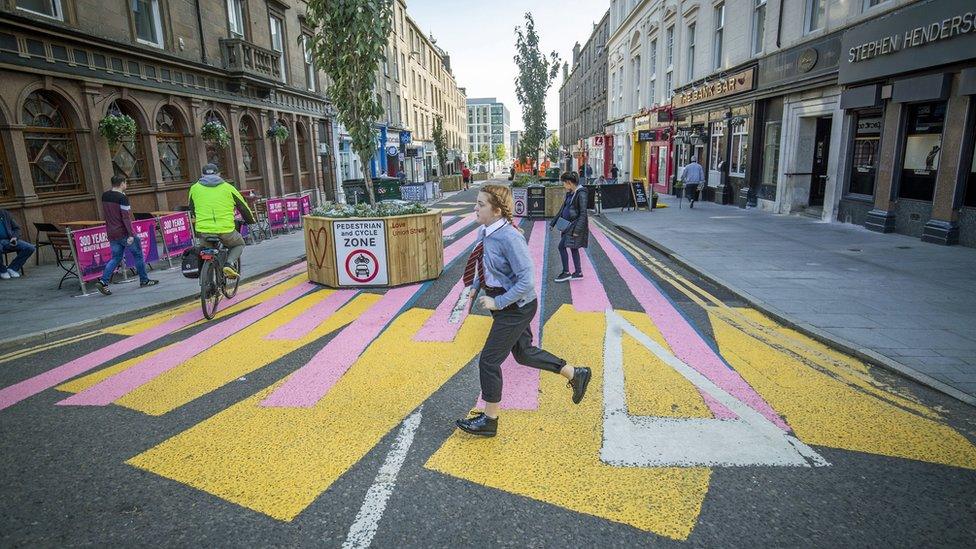'Cities as friendly to strangers as towns and villages'
- Published
- comments

People in Nottingham were the most likely to step forward and help
People living in a city are no less likely to help a stranger than in a town or village, according to research published by the Royal Society.
Psychologists from University College London carried out experiments such as pretending to drop things and seeing if anyone came to help.
They found people in Nottingham, Plymouth and Newcastle among the most likely to assist.
But they found greater caution in poorer areas about offering to help.
Help from passers-by
The researchers said they had "expected to find that people were less willing to help a stranger in more urban locations".
But any such expectations that city dwellers might be more suspicious or in too much of a rush were proved wrong.
Carrying out experiments in 37 different locations in England, Scotland and Wales, researchers found no evidence of cities being any less sociable towards strangers than towns or villages, or that urban areas were any less helpful than rural.
The experiments included dropping a load of cards on the pavement, as if by accident, and then seeing if passers-by would come to help a researcher trying to pick them up, with this process repeated almost 400 times.

The biggest pattern in helping was not geography but the wealth of the area
There were almost 900 stamped addressed envelopes placed as though they had been lost - with the researchers wanting to see how many were picked up and put into a letter box.
And there were tests of how often cars would stop to let a pedestrian cross the road.
Overall 55% of "lost" letters were put in the post and safely delivered, on 33% of occasions someone stepped forward to help pick up dropped items and 31% of cars, approaching at a safe speed, allowed a waiting pedestrian to cross.
But the study, looking at urbanisation and sociability towards strangers, found no link with the size or density of population.
The areas least likely to offer help were Redruth, a town in Cornwall, Abercynon, a village in south Wales and the Yorkshire city of Leeds.
Nottingham was the place with the greatest amount of sociable behaviour, with positive results from Plymouth, Newcastle, Edinburgh and the Warwickshire village of Polesworth.
Locations in London were not included, but Birmingham and Manchester were middle ranking in these experiments.
Wealth gap
But any regional differences in such "pro-social" behaviour were overshadowed by a much stronger link with the levels of wealth or deprivation, with the likelihood of help much greater in wealthier areas.
In the dropped items experiment, people in wealthier areas were twice as likely to come forward and help compared with poorer.
And the gap was even wider for whether cars would stop to let someone cross.

The experiments tested how the public would respond to helping strangers
It was a slightly narrower gap in cities for posting "lost" letters, with about 50% being returned in poorer areas and approaching 70% in more affluent.
Research author Nichola Raihani said it was not certain why "neighbourhood wealth" appeared to be such a factor, with the pattern also appearing when the experiments were carried out in richer and poorer districts of the same city.
But a sense of "environmental harshness" in deprived areas could make it less likely that people would stop and engage with strangers, Prof Raihani's research suggested.
She pointed to previous research suggesting that as poverty worsened, the level of "social trust" between people also declined.
And in wealthier, safer, greener areas, people with a greater sense of "material security", might feel more confident in reaching out to help a stranger.